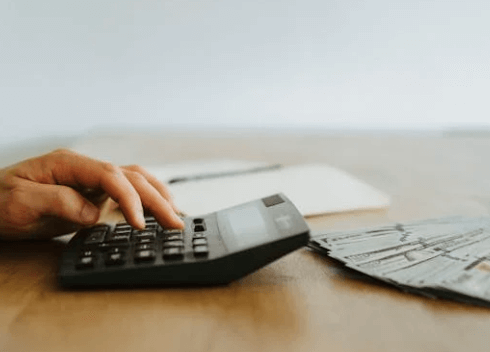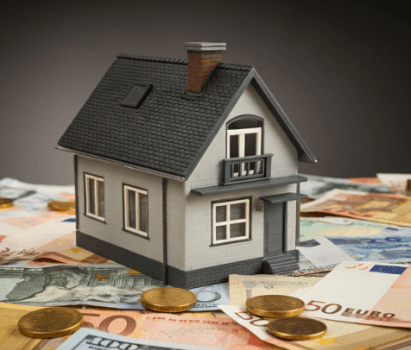When you own a house outright, without any outstanding mortgage balance, you may wonder, “Can I mortgage my house that is paid off?” Financial landscapes and personal needs can shift, securing extra funds for home upgrades, investments, or major expenses. One of the viable options available to homeowners is to tap into their property’s equity by securing a mortgage. Read on as we delve into the question, “Can I mortgage my house that is paid off?” and explore the various possibilities and considerations associated with this financial decision.
Real estate investors like Steve Daria and Joleigh often consider leveraging their fully paid-off properties to unlock additional capital. Mortgaging a house that is paid off can provide the flexibility to fund new investments or substantial home improvements. By understanding the pros and cons, homeowners can make informed decisions about tapping into their property’s equity.
Understanding the Basics of Mortgaging a Paid-Off House
Before answering the question, “Can I mortgage my house that is paid off?” it’s essential to understand that mortgaging a paid-off house through a cash-out refinance or a home equity loan permits homeowners to tap into the value they’ve accrued in their property over time.
In a cash-out refinance, the homeowner replaces their existing mortgage with a new one that is larger than the current loan balance, receiving the difference in cash.

This can provide substantial funds for purposes like home improvements, debt consolidation, or other significant expenses.
Can I Mortgage My House That Is Paid Off?
Mortgaging a paid-off house offers several compelling advantages for homeowners and investors alike.
It provides access to substantial funds that can be used for large-scale renovations or home improvements, enhancing the property’s value and comfort.
Additionally, individuals looking to invest in real estate can leverage the equity from their primary residence to finance the buying of additional properties, thereby diversifying their investment portfolio and potentially increasing overall returns.
The Benefits of Mortgaging a Paid-Off Home
- Access to Funds: Access substantial funds for any purpose, be it home improvements, debt consolidation, or investment opportunities.
- Potential Tax Benefits: Interest paid on a house equity loan may be deductible to tax, offering financial advantages.
- Lower Interest Rates: These loans usually have lower interest rates compared to loans or credit cards due to the collateral involved.
Get An Offer Today, Sell In A Matter Of Days…
Can I Mortgage My House That Is Paid Off? Types of Loans Available
When considering a mortgage for a paid-off house, there are several loan options available.
Knowing these choices can help you choose the one that best suits your needs.
Cash-Out Refinance
A cash-out refinance exchanges your existing mortgage with a new one but at a higher amount.
The difference between the old mortgage and the new one is given to you in cash. For example:
- If your home is worth $400,000 and you need $100,000, you can refinance for $100,000, resulting in a new loan balance of $100,000.
Home Equity Loan
A home equity loan, often known as a second loan, allows you to borrow a fixed amount of money against your home’s equity.
This loan typically has a fixed interest rate and is repaid over a set period.
Home Equity Line of Credit (HELOC)
A HELOC works like a credit card. You’re approved for a maximum amount and can get from this line of credit as needed.
Interest is only paid on the amount borrowed.
This option offers flexibility if you need funds intermittently over time.
Can I Mortgage My House That Is Paid Off? Essential Steps
Mortgaging a house that is paid off involves several steps. Here’s a detailed look at the process:
Assessing Your Financial Situation
Before proceeding, evaluate your financial health.
This includes reviewing your credit score, income, and existing debts.
Lenders will scrutinize these aspects to determine your loan eligibility and terms.
Choosing the Right Loan
Based on your financial needs and situation, decide which type of loan suits you best.
A financial advisor can give valuable insights tailored to your specific circumstances.
Applying for the Loan
Once you’ve selected a loan type, gather needed papers like proof of income, tax returns, and property details.
Submit these to your chosen lender and await approval.

Strategies for Successful Loan Approval
Securing a mortgage on a paid-off house can be straightforward, but it requires careful planning and preparation.
- Maintain a Good Credit Score: Lenders prioritize applicants with strong credit histories. Paying bills on time, reducing debt, and correcting any errors in your credit history can improve your chances of approval.
- Provide Detailed Documentation: Ensure all required papers are accurate and readily available. This includes proof of steady income, tax returns, and property appraisals.
- Consider a Professional Appraisal: An up-to-date property appraisal can help determine your home’s current market value, which is crucial for loan approval. An accurate appraisal ensures you’re not borrowing more than your home is worth.
Tips for Managing Your New Mortgage
Taking on a new mortgage is a significant financial commitment.
Here are some tips to help you manage it effectively:
- Budget Carefully: Make a detailed budget that factors in your new mortgage payments. This can help you prevent financial strain and ensure timely payments.
- Plan for the Future: Consider setting aside funds for unexpected costs. This can provide a safety net and avoid financial difficulties in case of unforeseen events.
- Regularly Review Your Loan Terms: Stay informed about your loan terms and conditions. Consistent reviews can help you stay on top of your payments and adjust your budget as needed.
Frequently Asked Questions
Explore the most common queries about mortgaging a house that is paid off.
Can I mortgage my house that is paid off if I have a low credit score?
While having a low credit score can make the process more challenging, it’s not impossible.
Some lenders specialize in working with persons with less-than-perfect credit.
However, expect higher interest rates and stricter terms.
How much can I borrow against my paid-off house?
The amount you can borrow depends on your home’s current market value and the lender’s policies.
Usually, lenders allow you to borrow up to 80% of your home’s value.
Are there any risks involved in mortgaging a paid-off house?
Yes, there are risks. Defaulting on your loan could result in losing your home.
It’s essential to assess your financial situation carefully and ensure you can manage the loan payments.
Conclusion
Mortgaging a house that is paid off can be a smart financial move for those needing access to substantial funds. Whether for investment, renovation, or personal use, understanding your loan options and preparing adequately can streamline the process. Remember, thorough planning and financial discipline are key to managing your new mortgage successfully.
**NOTICE: Please note that the content presented in this post is intended solely for informational and educational purposes. It should not be construed as legal or financial advice or relied upon as a replacement for consultation with a qualified attorney or CPA. For specific guidance on legal or financial matters, readers are encouraged to seek professional assistance from an attorney, CPA, or other appropriate professional regarding the subject matter.

